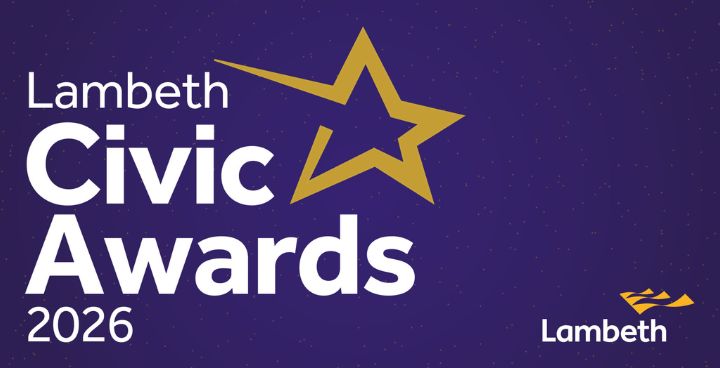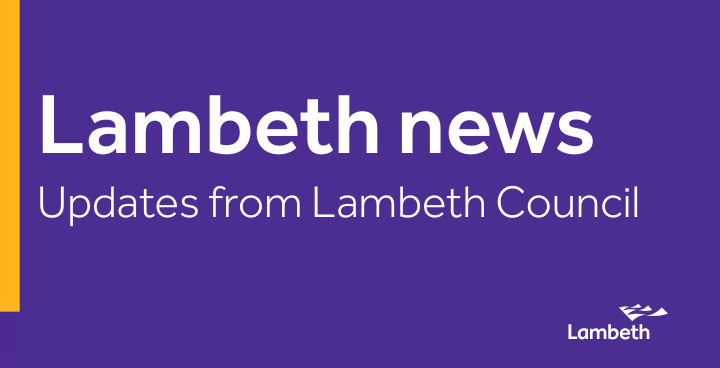We’ll be adding more here as and when we get the answers in, so keep checking back. If you’ve got any comments to make you can do so at the bottom of this post.
Can we have more funding for early years projects please?
The answer is YES! Lambeth has just been successful in winning a £36m bid to the Big Lottery Fund for its Better Start programme (LEAP) which will provide lots of different projects aimed at pregnancy until a child’s 4th birthday. LEAP projects will aim to improve communication and language, social and emotional development and diet and nutrition. The LEAP programme will focus on four wards in the centre of Lambeth (Coldharbour, Tulse Hill, Vassall and Stockwell) but we hope to roll out successful projects more widely.
Lambeth has 26 children’s centres across the borough with lots of activities for under fives and families as well as a network of one o clock clubs based in parks where parents and carers can stay and play with young children.
Is there an alternative to stop and search?
We need intelligence led searches. Intelligence-led targeting of suspected criminals helps to cut knife crime and youth killings. However, while targeted action helps cut crime, the reality is too many searches are not targeted at all.
Police use of stop and search powers has a controversial history in Lambeth, not least because young people and black and minority ethnic communities are disproportionately represented amongst those stopped. At the same time, the ability to stop and search suspects is an indispensable power for the carrying out of policing.
The use of stop and search causes damage to community relations if the power is misused (i.e. the suspicion isn’t really reasonable); if there is discrimination in its application (e.g. stopping young black men because it’s thought they’re more likely to commit crime); or if the stops are carried out in a disrespectful, humiliating and unprofessional manner by officers. The power needs to be used in a selective and focused way, by officers who are well trained and professional and needs to rely on greater use of intelligence and surveillance (directing officers to stop people actually identified in possession of stolen goods, drugs or weapons). The use of the power also needs to be monitored to keep a check on whether anything is going wrong and to inform public scrutiny of the police.
How can we reform our education system?
Although the responsibility for reform lies with Central Government, at a local level we are focused on maintaining high standards. Last year, Lambeth pupils celebrated record breaking exam results, with 66% of pupils achieving five good GCSEs and we want to build on this success to help our young people get the qualifications that allow them to go to university or get good quality jobs and apprenticeships.
Lambeth challenges schools in all contexts to ensure any changes to policy and practice are carefully planned, delivered and evaluated to ensure high standards are maintained. For example in September 2014 previous national curriculum levels will no longer exist and schools can adopt new assessments. We will provide advice and support to schools to ensure that whatever system is used works for the school and the pupils it serves.
How can the council provide opportunities in schools?
We want more young people to have apprenticeship and work experience opportunities. We help students find placements by working with school and signposting them to website and advice services. We encourage employers to work closely with schools to plan placements in detail to ensure pupils and employers have the best possible experience.
To help young people get their first foot on the jobs ladder, we support a network of employment and skills centres and employ an apprenticeship coordinator to ensure young people are given the opportunity to get new skills, training and experience.
What are you doing about youth unemployment?
We recognise that youth unemployment is unacceptably high and that unemployment can have long term negative impacts (on future employment, earnings and health) on young people.
We currently work with partners across the borough to support young people into apprenticeships and jobs. Last year we directly supported 311 individuals into employment, 97 of whom were under 25.
The council also works with partners to help create apprenticeships and place young people into these. Last year we helped 31 young people into apprenticeships.
The council also delivers its own apprenticeships scheme and while in its infancy, it is envisaged that this will grow over the coming years and become an important pathway into working in local government for young people in Lambeth. We currently have 12 positions in a range of work areas including legal services, employment and enterprise, IT and within schools.
Acting as lead accountable body for a DWP Flexible Support Fund bid delivered by Cross River Partnership last year, Lambeth Council also supported 61 young people into opportunities primarily in the West End retail sector.
What can Lambeth do to help graduates into full time employment?
Lambeth Working already works with graduates – many of whom are currently unemployed and seeking work. What we do know is that many graduates lack work experience and find themselves unable to compete due to this – this is worsened in a more competitive labour market such as we have now.
If we were to extend our current offer to graduates we could consider the following kinds of things:
- Working with local employers to develop a local graduate training programme which provides short periods of work experience aimed at equipping the graduate with experience of the workplace.
- Deliver a bespoke graduate employability sessions – aimed at providing graduates with advice and support on CVs, applications and interviews – involve local employers
Lambeth Working is planning a graduate event for Autumn 2014; having engaged with employers including Barclays we are now co-ordinating a focus group with Lambeth graduates via Jobcentre Plus to co-operatively develop the programme for the day.
In addition to having employers directly recruiting, it is intended that the day will comprise a series of employer-led workshops focused on areas of the graduate recruitment process identified by the focus groups as those in which they would like support.
Lambeth council as an employer
The Council is participating in the National Government Development Programme this year, which is run by the LGA. The LGA encourages councils to take part in this programme each year, by offering two placements to graduates within our organisations. Lambeth have requested (and will be appointing) four graduates this year. They will be with the council for a fixed-term of two years, and will be commencing in post in September.
During their tenure with us, the graduates will have four placements (one within each cluster) and be assigned tangible projects which will provide them with valuable work experience, as well as develop their skills to become future leaders. When we took part in this programme in 2008, we took on four graduates. Three of those graduates managed to secure permanent employment with the council, whilst one secured a role with KPMG. Therefore, there is definitely value in taking part in this scheme.
In addition, Council employees are encouraged to spend time volunteering within the community, including providing support to young people to enable them to be better equipped to enter the workforce. A number of Council employees participated in the “Entrepreneurs in Action” programme for year 10 students from the Evelyn Grace Academy.
What are some of the ways to reduce unemployment?
Local brokerage – this helps local people get a step into work by providing additional support to the candidate and creating better local recruitment links for employers.
Improving the quality of skills programmes so they equip young people with the skills that employers need would help reduce unemployment. Coding for example.
Developing links and programmes between schools and business so that young people are more exposed to the world of work while still in school, can be inspired by areas of work like science, engineering, catering, technology and can speak directly and learn from specialists in a range of career areas – this would improve young peoples awareness of options and careers.
Why is it being made so hard for young people to get into employment?
Young people lack experience and exposure to the work place – this can be one of the main reasons, employers often want someone ready to go and commercial pressures mean that they don’t think longer term and invest in the future workforce.
Youth unemployment has been a problem in the UK for many years even before the recession – due to a mix of factors including increasing competition for jobs, the demand for higher level skills, poor transitions between schools and work, employer lack of investment in skills/young people /apprenticeships etc.
Can Lambeth fund more courses for young people?
Lambeth has certain funds which it can use to fund provision (for example S106) however the best use of its limited resources would be to lobby mainstream funders and government for improved provision.
Lambeth works closely with other providers of localized funding such a DWP Flexible Support Fund to ensure that programmes that are funded through this means meet identified local need and provide real pathways to employment for young people.
The link below to a report on youth unemployment may be of interest – http://www.theworkfoundation.com/DownloadPublication/Report/314_short-term%20crisis_long_term_problem.pdf



